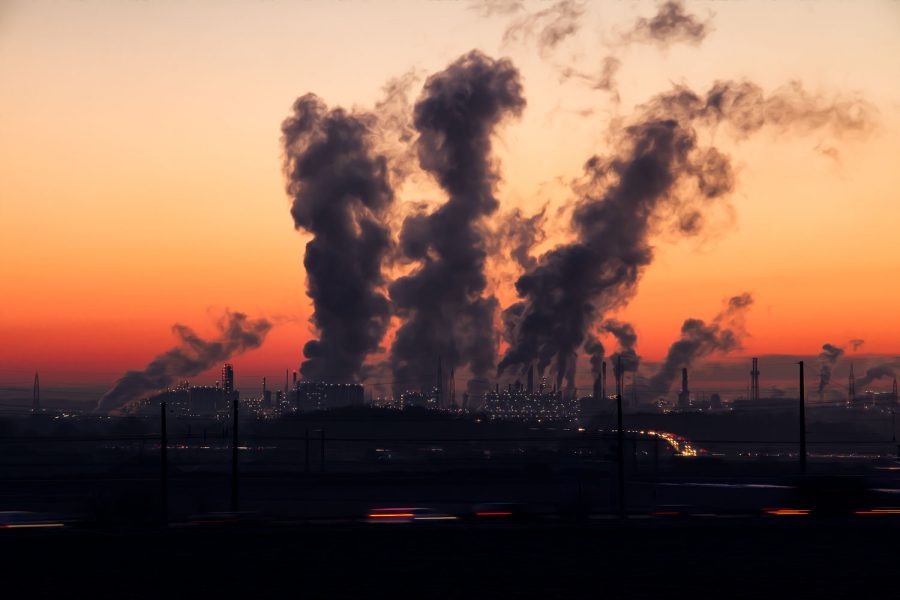COVID Cooldown
What has coronavirus done to affect carbon emissions?
Photo: SD-pictures/pixabay.com
Factories with on-site workers have been closed, greatly cutting carbon emissions
Our world has been slowly heating up since the 1800s when fossil fuels like coal, natural gas, and oil began mass use, releasing copious amounts of carbon dioxide into our atmosphere.
What has the coronavirus quarantine done to carbon dioxide output? To put it shortly, it has brought about record lows of carbon for at least the last few decades.
According to Marketwatch, “From Feb. 3 to March 1, CO2 emissions were down by at least 25% because of the measures to contain the coronavirus.”
To explain why this is significant, science teacher Alexa Johnson stated, “When we burn these fossil fuels, we release all of the carbon that the plants have been storing.”
The excess of carbon dioxide in our atmosphere is undeniably linked to global warming. This is because carbon atoms in the atmosphere absorb more heat per molecule than oxygen atoms, and linger in the air for a very long time, slowly raising temperatures globally.
According to Peter Lennon, former Head of the Seattle Climate Lobby, “Polluted air traveling downstream can travel hundreds of miles in just a few days.” This means that just about everywhere on Earth is affected by a degree of air pollution.
An estimate from greenbiz.com states, “The global economic slowdown triggered by the escalating coronavirus crisis is on course to deliver the steepest annual fall in CO2 in history, with a larger reduction in emissions expected in 2020 than seen even during the Second World War.”
Another reason for the lowered carbon emissions is the increased use of clean power because of quarantine.
According to The Seattle Times, “power plants will use 11% more renewables and 20% less coal this year.”
Accompanying this increase of green energy, less gasoline will be consumed. According to the same Seattle Times article, “Americans will burn 9% less gasoline and diesel and 10% less jet fuel.”f
Families in the UPrep community seem to agree with the lowered gasoline statistic. Eighth-grader Jaron Ezekiel said, “We only really leave for groceries.”
It is really a quarantine mood, but many people around Seattle and the world share this sentiment.
This is big news for the whole world, and according to The Seattle Times, this means we are at the lowest global carbon emission rate since at least 1990. Estimates say this downturn in emissions will likely spike up after quarantine, but maintaining this trend is essential for halting global warming in its tracks.


